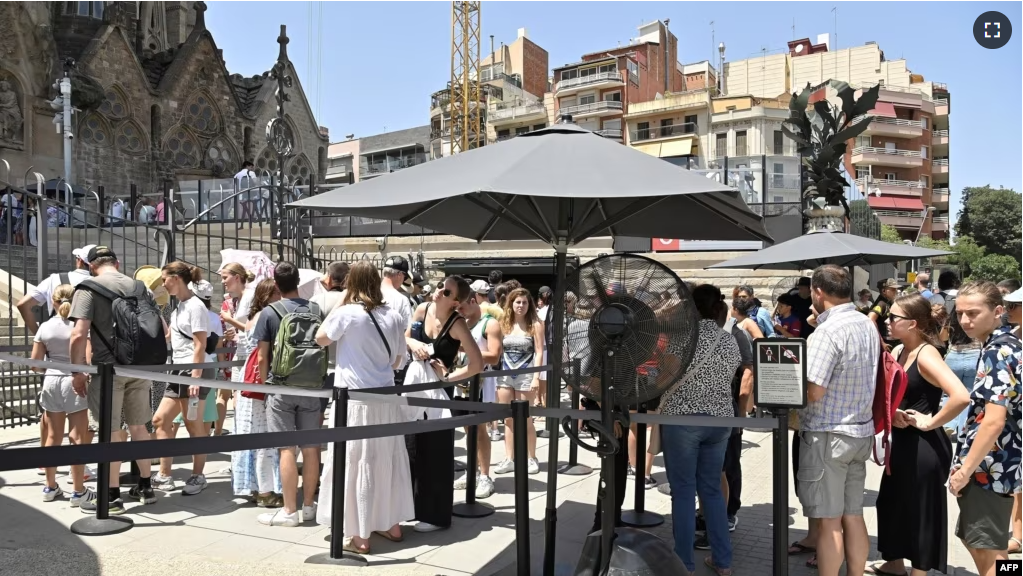Famous Christian religious places in southern Europe are seeing record numbers of visitors. But not everyone is happy about the large crowds. Church leaders are finding it difficult to balance the needs of tourists and the people who come to pray.
Dealing with more visitors
This spring, the Vatican opened a separate “pathway” starting outside St. Peter’s Basilica for those who want to take part in religious services. St. Peter’s spokesperson Roberta Leone said officials made the change because of long lines for the 55,000 daily visitors.
The Vatican’s move is an example of what many churches are doing. They have tourists and religious people go separate ways. Religious services are sometimes held in different places. And sometimes tourists are not permitted at worship times.
With an estimated 330 million people visiting religious places yearly around the world, religious tourism is one of the largest parts of the tourism market.
Worshippers often come because celebrated churches generally have more services than regular churches. They need to be able to enter at no cost. Tourists often pay fees that are important for churches to maintain their buildings.
Daniel Olsen of Brigham Young University in Utah studies religious tourism. Olsen said of the situation, “It’s just really hard because you also want people to experience your faith.”
Different opinions
Some religious people are unhappy with the large numbers of visitors.
After the ceremony of Mass in the burial area of the Sagrada Familia church in Barcelona, Spain, Joan Albaiges said, “The temple needs to be a place for services and not a theme park.”
He praised the policy change in recent years to celebrate one Sunday Mass at the main altar.
But there is such demand for the 800 free tickets that several hundred people waiting often do not get in, said Josep Maria Turull. Turull is the rector at Sagrada Familia who also oversees tourism for the local church organization.
Religious leaders say the histories of the sacred buildings should be presented to visitors. These visitors increasingly do not know about faith traditions in churches.
José Fernández Lago is rector of the Cathedral of Santiago de Compostela. Filled with beautiful art, Santiago’s cathedral draws hundreds of thousands of tourists and religious visitors known as pilgrims.
To remain a special place for religious pilgrims, Lago said, the cathedral does not charge money for entry. The cathedral also does not limit visitor numbers or require people to wear formal clothing.
But visits are not permitted during the four daily Masses celebrated at the main altar. And priests as well as security guards always have to ask visitors to lower their voices so that worshipers can pray in peace.
“Some people go to the cathedral, and they don’t realize they’re in a church,” Lago observed. He added, “It’s a situation that’s developing in nations that were majority Christian, and now faith is cooling off.”
I’m Ashley Thompson.
Giovanna Dell’Orto reported on this story for the Associated Press. John Russell adapted it for VOA Learning English.
__________________________________________________
Words in This Story
tourist – n. a person who travels to a place for pleasure
Mass – n. a Christian ceremony in the Roman Catholic Church
temple –n. a building for worship
theme park –n. a place with rides and fun things to do that are all connected by a cultural or artistic idea
altar – n. a platform or table used as a center of worship in Christian ceremonies
rector – n. a priest or minister who is in charge of a church or parish
